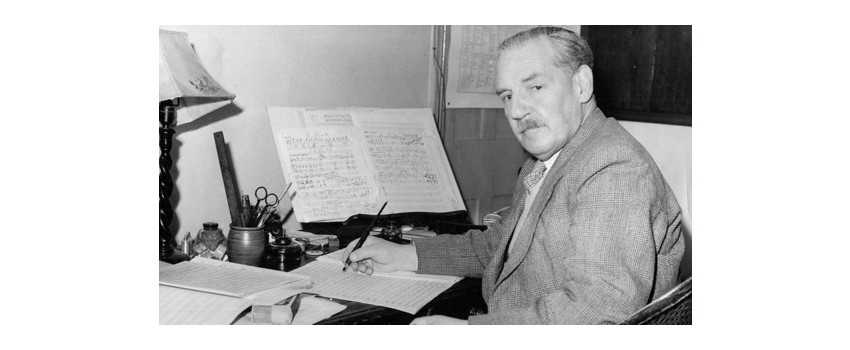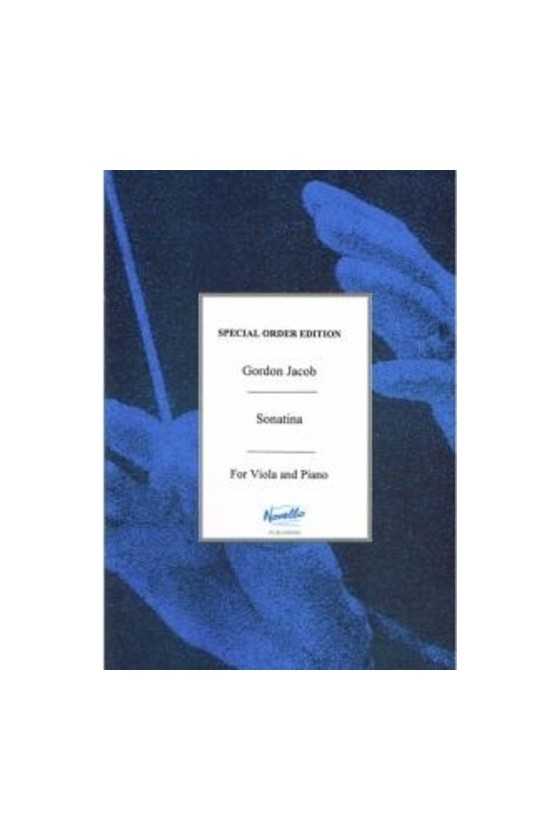- MenuBack
- Instruments
- Strings
- Violin Strings
- Violin Strings A-G
- Alphayue Violin Strings by Thomastik-Infeld
- Amber Violin Strings by Warchal
- Ametyst Violin Strings by Warchal
- Ascente Violin Strings by D'Addario
- Aurora Violin Strings by Larsen
- Brilliant Violin Strings by Warchal
- Brilliant Vintage Violin Strings by Warchal
- Chromcor Violin Strings by Pirastro
- Dominant Violin Strings by Thomastik-Infeld
- Dominant Pro Violin Strings
- Dynamo Violin Strings by Thomastik-Infeld
- Eudoxa Violin Strings by Pirastro
- Evah Pirazzi Violin Strings by Pirastro
- Evah Pirazzi Gold Violin by Pirastro
- Goldbrokat Violin E Strings
- Corelli Violin Strings
- E Strings - Various Brands
- Violin Strings H-O
- Helicore Violin Strings by D'Addario
- Hill Violin E String by W. E. Hill & Sons
- Infeld Blue Violin Strings
- Infeld Red Violin Strings
- Jargar Violin Strings
- Kaplan Violin Strings by D'Addario
- Karneol Violin Strings by Warchal
- Larsen Violin Strings
- Maestro Violin Strings
- Obligato Violin Strings
- Oliv Violin Strings
- Opal Titan Violin Strings
- Opal Gold Violin Strings
- Violin Strings P-Q
- Violin Strings R-Z
- Violin Strings A-G
- Viola Strings
- Viola Strings A-O
- Alphayue Viola Strings
- Ascente Viola Strings
- Dominant Viola Strings
- Eudoxa Viola Strings
- Evah Pirazzi Viola Strings
- Helicore Viola Strings
- Jargar Viola Strings
- Kaplan Viola Strings
- Larsen Viola Strings
- Larsen Virtuoso Soloist Viola Strings
- Maestro Viola Strings
- Obligato Viola Strings
- Oliv Viola Strings
- Opal Green Pro Viola Strings
- Viola Strings P-Z
- Viola Strings A-O
- Cello Strings
- Cello Strings A-E
- Cello Strings H-P
- Helicore Cello Strings
- Jargar Cello Strings
- Kaplan Cello Strings
- Larsen Cello Strings
- NS Design Electric Cello Strings
- Obligato Cello Strings
- Opal Gold Cello Strings
- Opal Titan Cello Strings
- Passione Cello Strings
- Permanent Cello Strings
- Perpetual Cello Original Strings
- Perpetual Soloist Cello Strings
- Piranito Cello Strings
- Precision Cello Strings by Thomastik-Infeld
- Prelude Cello Strings
- Prim Cello Strings
- Cello Strings Q-Z
- Double Bass Strings
- Double Bass Strings
- Belcanto Double Bass Strings
- Dominant Double Bass Strings
- Eudoxa Double Bass Strings
- Evah Pirazzi Double Bass Strings
- Helicore Double Bass Strings
- Kaplan Double Bass Strings
- Maestro Double Bass Strings
- NS Electric Double Bass Strings
- Obligato Double Bass Strings
- Perpetual Double Bass Strings by Pirastro
- Precision Double Bass Strings
- Prelude Double Bass Strings
- Spirocore Double Bass Strings
- Superflexible Bass Strings
- Double Bass Strings
- Bows
- Cases
- Accessories
- Learn - All Grades
- Beginner Methods A-N
- Abracadabra
- Adventures in Violinland
- The ABC's books
- All for Strings
- Artistry in Strings
- A Tune A Day
- Blackwell Books
- Colour Strings Books
- Edward Huws Jones
- Encore On Strings
- Essential Elements
- Flying Start for Strings
- L Fin Beginning Ensemble Series
- Katherine and Hugh Colledge
- Mary Cohen Books
- My First Pieces & My Next Pieces
- Nelson Books
- New Directions for Strings
- Perform
- Violin Sheet Music
- Composers Violin A-C
- Accolay, Jean Baptiste
- Achron, Joseph Yulyevich
- Albinoni, Tomaso
- Arne, Thomas Augustine
- Bach, Johann Sebastian
- Bartók, Béla
- Beethoven, Ludwig van
- Bloch, Ernest
- Beriot, Charles Auguste De
- Brahms, Johannes
- Bridge, Frank
- Bruch, Max
- Carse, Adam
- Campagnoli, Bartolomeo
- Cerulli, Bob
- Chausson, Ernest
- Chopin, Frédéric François
- Copland, Aaron
- Corelli, Arcangelo
- Corigliano, John
- Composers Violin D-G
- Dancla, Charles
- Debussy, Claude
- Delius, Frederick
- De Falla, Manuel
- Dinicu, Grigoraș Ionică
- Doflein, Elma
- Drdla, Franz
- Dvorak, Antonin
- Eccles, Henri
- Edwards, Ross
- Elgar, Edward
- Faure, Gabriel
- Finzi, Gerald
- Fiocco, Joseph Hector
- Franck, César-Auguste
- Gade, Jacob
- Guareschi, Giovannino
- Giazotto, Remo
- Górecki, Henryk
- Glazunov, Alexander
- Composers Violin H-K
- Composers Violin L-M
- Composers Violin N-T
- Perlman, Itzhak
- Paganini, Niccolò
- Power, James
- Prokofiev, Sergei
- Rachmaninoff, Sergei
- Ravel, Maurice
- Rieding, Oskar
- Rimsky-Korsakov, Nikolai
- Rode, Jacques Pierre Joseph
- Saint-Saens, Camille
- Sarasate, Pablo de
- Schumann, Robert
- Schubert, Franz
- Schradieck, Henry
- Seitz, Friedrich
- Shostakovich, Dmitri
- Sibelius, Jean
- Smetana, Bedrich
- Spohr, Louis
- Strauss, Richard
- Stravinsky, Igor
- Suk , Josef
- Svendsen, Johan
- Szelenyi, Istvan
- Szymanowski, Karol
- Tartini, Giuseppe
- Tchaikovsky, Pyotr Ilyich
- Telemann, Georg Philipp
- Piazzolla, Astor
- Composers Violin U-Z
- Popular Violin Sheet Music
- Other Violin Sheet Music
- Composers Violin A-C
- Viola Sheet Music
- Composers Viola A-C
- Accolay, Jean-Baptiste
- Anderson, Kenneth
- Bach, Johann Christian
- Bach, Carl Philipp Emanuel
- Bach, Johann Sebastian
- Bartók, Béla
- Bax, Arnold
- Beethoven, Ludwig van
- Bériot, Charles Auguste de
- Biber, Heinrich Ignaz Franz
- Bloch, Ernest
- Boccherini, Luigi
- Böhm, Karlheinz
- Bohm, Theobald
- Bowen, York
- Brahms, Johannes
- Bridge, Frank
- Britten, Benjamin
- Bruch, Max Felix
- Butterworth, Arthur
- Carter, Elliott
- Clarke, Rebecca
- Corelli, Arcangelo
- Corrette, Michel
- Composers Viola D-G
- Dale, Benjamin
- Dean, Brett
- Debussy, Claude
- Dittersdorf, Carl Ditters von
- Dodgson, Stephen
- Dounis, Demetrius Constantine
- Dvořák, Antonín
- Eccles, Henry
- Elgar, Edward
- Eliot, Norton, Charles
- Enesco, Georges
- Fauré, Gabriel
- Fiocco, Joseph-Hector
- Forbes, Watson
- Franck, Cesar
- Francoeur, François
- Fuchs, Lillian
- Gershwin, George
- Glazunov, Alexander
- Glinka, Mikhail
- Granados, Enrique
- Composers Viola H-K
- Handel, George Frideric
- Handoshkin, Ivan Evstafeivich
- Haydn, Joseph
- Hindemith, Paul
- Hoffmeister, Franz Anton
- Hovhaness, Alan
- Hubay, Jenő
- Hyde, Miriam Beatrice
- Jacob, Gordon
- Joachim, Joseph
- Jones, Matthew
- Kalliwoda, Johann Wenzel
- Kayser, Heinrich Ernst
- Kreisler, Fritz
- Kreutzer, Rodolphe
- Küchler, Ferdinand
- Jenkinson, Ezra
- Composers Viola L-M
- Composers Viola N-R
- Pachelbel, Johann
- Nyman, Michael
- Onslow, George
- Paganini, Niccolò
- Pergolesi, Giovanni Battista
- Piatigorsky, Gregor
- Piazzolla, Astor
- Prokofiev, Sergei
- Puccini, Giacomo
- Purcell, Henry
- Rachmaninoff, Sergei
- Ravel, Maurice
- Reger, Max
- Reinecke, Carl
- Richardson, Alan
- Rieding, Oskar
- Rimsky-Korsakov, Nikolai Andreyevich
- Rivier, Jean
- Rode, Jacques Pierre Joseph
- Composers Viola S-T
- Composers Viola U-Z
- Popular Viola Sheet Music
- Other Viola Sheet Music
- Composers Viola A-C
- Cello Sheet Music
- Composers Cello A-C
- Andriessen, Louis
- Bach, Johann Sebastian
- Bantock, Granville
- Bartók, Béla
- Beethoven, Ludwig van
- Bloch, Ernest
- Boccherini, Luigi
- Boëllmann, Léon
- Brahms, Johannes
- Bréval, Jean-Baptiste
- Bridge, Frank
- Britten, Benjamin
- Bruch, Max
- Caix d'Hervelois, Louis de
- Carse, Adam
- Cassadó, Gaspar
- Cirri, Giovanni Battista
- Clarke, Rebecca
- Composers Cello D-G
- Dare, Marie
- Davydov, Karl
- Debussy, Claude Achille
- Fesch, Willem de
- Dvorak, Antonin Leopold
- Eccles, Henry
- Elgar, Sir Edward
- Falla, Manuel de
- Faure, Gabriel-Urbain
- Ferguson, Howard
- Feuillard, Louis
- Foss, Lukas
- Franchomme, Auguste
- Francoeur, François
- Gabrieli, Giovanni
- Galliard, Johann Ernst
- Glazunov, Alexander
- Goens, Daniël van
- Goltermann, Georg
- Guymer, Ingrid
- Granados, Enrique
- Gounod, Charles François
- Composers Cello H-K
- Composers Cello L-M
- Composers Cello N-R
- Composers Cello S-T
- Saint-Saëns, Camille
- Sammartini, Giuseppe
- Sassmannshaus, Kurt
- Schubert, Franz
- Schumann, Robert Alexander
- Sculthorpe, Peter
- Senaillé, Jean Baptiste
- Shostakovich, Dmitri
- Sibelius, Jean
- Squire, William Henry
- Strauss, Richard
- Stravinsky, Igor
- Tartini, Giuseppe
- Tchaikovsky, Pyotr Ilyich
- Telemann, Georg Philipp
- Trowell, Arnold
- Composers Cello U-Z
- Popular Cello Sheet Music
- Other Cello Sheet Music
- Composers Cello A-C
- Play Together
- School Orchestra A-H
Jacob, Gordon
Septimus Gordon Percival Jacob (5 July 1895 – 8 June 1984) was a composer and teacher from England. From 1924 to 1966, he was a professor at the Royal College of Music in London, where he authored four books and numerous essays on music. He was a prolific composer, with over 700 works to his credit, most of which are his compositions, but a sizable minority are orchestrations and arrangements of other composers' works. William Byrd, Edward Elgar, and Noel Coward are among the composers whose work he orchestrated. Jacob wrote a lot of music. According to Grove, he composed 16 concertos for solo instruments, including trombone and timpani. In addition, more than 700 unique compositions or interpretations of existing music are listed on a website dedicated to Jacob. As a composer, Jacob was influenced more by early 20th-century French and Russian models than by German tradition, according to his biographer (and former pupil) Eric Wetherell. "Clarity of structure and instrumental writing that displays a great grasp of the possibilities and limitations of every instrument," comments Wetherell of Jacob. "As a general description, 'Good, but a little dry' might be justly applied to Jacob's work," The New York Times wrote in a review of a concert of his music conducted in 1939.
Between more ambitious compositions, Jacob created music for choral groups and school choirs in the 1920s and 1930s, which gave a consistent income. Wetherell's works from the 1920s include a viola concerto (1926), a piano concerto (1927), and the First Symphony (1929), which is dedicated to Jacob's favorite brother, who died in the First World War. Variations on an Original Theme (1935) and an oboe concerto for Léon Goossens (1935) are two large-scale works from the 1930s (1937)
Jacob, along with several other young composers, composed for the Sadler's Wells Ballet Company in the 1930s (now The Royal Ballet). Uncle Remus (1934), created for them, was his only original ballet (apart from student work, The Jew in the Bush (1928)). In addition, Jacob composed music for various propaganda films during WWII, and after the war, he composed the score for the feature film Esther Waters (1948). The austere Symphony for Strings (1943), written for the Boyd Neel Orchestra, reflects a more intimate perspective on the conflict.
One reviewer called Jacob's Second Symphony, which premiered on 1 May 1946 at a BBC studio recording, "probably the fascinating composition that has yet come from this composer." The work's depth of feeling, according to the reviewer, ranges from romantic thrill in the first movement to poignancy and rage in the two middle parts to an attitude of heroism in the final passacaglia. Music for a Festival (for brass and military bands), concertos for flute and horn, and the cantata A Goodly Heritage were all premiered in 1951, the year of the Festival of Britain.
Incidental music to a dramatized interpretation of the biblical Book of Job, originally presented at the Festival of the Arts, Saffron Walden, and afterward televised by the BBC, was among Jacob's later original compositions. The majority of Jacob's ballet scores were adaptations of older works, such as Les Sylphides (1932, with Chopin's music), Carnival (1932, with Schumann's music), Apparitions (1936, with Liszt's music), and Mam'zelle Angot (1936, with Liszt's music) (1947, Lecocq). Jacob arranged Nol Coward's one-act ballet London Morning for the London Festival Ballet in 1958. Jacob re-orchestrated the score of Frederick Ashton's ballet Marguerite and Armand in 1968, replacing Humphrey Searle's arrangement of Liszt's music.

2 products.
Boxed:
Sticky Header:
Sticky Add To Cart
Sticky Footer:
Font:


